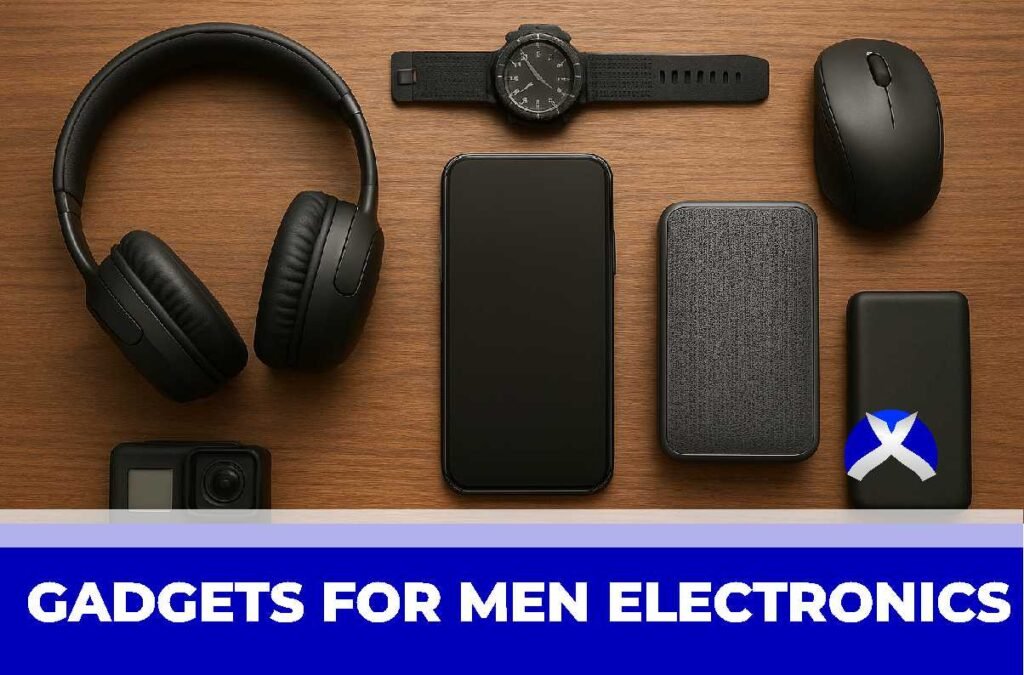The digital world is rapidly evolving, and tech giants envision future beyond smartphones as they tend to integrate human existence with emerging technology. Handheld devices are gradually giving way to emergency technologies like Artificial Intelligence (AI), augmented reality (AR), and neural interfaces that blur the line between the digital and real world.
We have tech giants like Meta, Apple, Samsung, Huawei, and Google, who have engaged in the race to redefine personal computing and communication, and how they will impact the future tech world.
In this article, we will delve into how tech giants are getting set for the future of technology by venturing into Artificial Intelligence (AI), augmented reality (AR), virtual reality (VR), and wearables to shape the next wave of digital transformation. Tech giants envision future beyond smartphones as Apple, Meta, Google, and Microsoft pioneer AI, AR, and wearable innovations redefining human connection and technology’s purpose
1. The Shift from Smartphones to Seamless Experiences
Smartphones have dominated for decades and transformed the way we communicate, entertain ourselves, and live daily. But an underground shift is coming in the near future. Still, top tech companies recognize that the age of handheld devices is nearing its end. Today, users want hands-free, smart devices that can anticipate their needs and blend seamlessly into their environment.
The shift from smartphones represents a giant transformation. Tech giants no longer envision handheld devices, but devices that merge artificial intelligence and mixed reality into a digital interface that will replace normal screens. However, Apple Vision Pro, Samsung XR headsets, and Meta Quest 3 are glimpses pointing in that direction.
So, expert predicts that wearables, smart environments, and AI-powered systems that can respond to thoughts, gestures, and emotions will be the next thing after smartphones.
2. The Vision of Tech Giants
Apple: Building Human-tech Interface (Spatial Computing)
Apple is one of the tech giants that focuses its vision on spatial computing. One bold step Apple took to navigate into the future is the Apple Vision Pro Headset. The future tech will be integrated into our environment, helping us interact with it through voice commands, body gestures, and eye movements, and shifting us from the use of physical screens.
Apple has reportedly invested over $8.3 billion in Spatial computing lately. Their main ambition is to switch from iPhone to the future technology, which includes the augmented reality powered by AI and seamless cloud integration, which will be integrated into daily lives.
Meta (Facebook): The Metaverse (AR and VR)
Meta’s CEO, Mark Zuckerberg, is one of the tech titans who envisions a future beyond smartphones and has the ambition to replace smartphones with Virtual environments and augmented reality (AR). When Mark Zuckerberg was asked what he would replace smartphones with? He pointed to his answer to the Metaverse. He said, a persistent digital world where users can play, work, and connect using VR/AR technologies.
With Meta’s huge investment in Reality Labs and AI-powered wears like EssilorLuxottica’s AI-powered watch, which translates thoughts into digital actions. This reveals that Mark’s primary goal is to create a direct interface between humans and future technology.
Google: Ambient Computing and AI-centered Future
Google is one of the reputable and leading tech giants that envisions a future where technology fades into the background, integrated into our daily life activities, creating a future where AI-powered devices, and that’s the “ambient computing”.
Ambient will shape the future, where we won’t need to tap on a screen anymore. Instead, we’ll live in a technology era where we only have to speak, glance, or move, and our devices will respond instantly.
Google’s recent collaboration with Qualcomm and Samsung, which involved an investment of approximately $5.7 billion in Artificial intelligence and ambient computing, received a green light. Google’s advancements in generative AI, predictive computing, and language understanding signify a vision that extends beyond handheld smartphones.
you can also check this article on Best AI Phone Call Agent with Background Noise (Our Top Pick)
Microsoft: Shift to Intelligent Ecosystems
While other tech companies are venturing into AI and AR, Microsoft cannot be left out. Microsoft is one of the tech giants that envisions the future beyond smartphones. Microsoft focuses on integrating Artificial Intelligence into both hardware and software.
A typical example of Microsoft’s approach toward the future beyond smartphones is the Copilot AI assistance and the HoloLens AR headset. With over $3 billion invested in R&D (a technology that allows mid-air interaction without wearables) by Microsoft, it is clear that this tech giant envisions a future beyond smartphones.
3. The Role of AI in the Future beyond Phone
Artificial Intelligence (AI) has come to stay, and the shift to a future beyond smartphones lies in its concept. AI has been embedded into almost every aspect of life that involves human operation by futuristic tech giants and mid-class companies.
AI is rapidly going to the point where it can predict your schedule, manage health statistics, recommend means based on body condition, or even translate your thoughts into written text without you lifting a finger. You could wonder how and stress-free life would be.
The use of AI is beyond smart technologies, but personal. As handheld devices slowly disappear, it becomes the interface. The boundaries between software dissolve, leaving behind a world of responsive and personalized experiences.
4. Global Expansion: Tech Giants in Africa and Nigeria
Over time, Silicon Valley has consistently been a hub of discussions about innovation, but it has not stopped there. However, tech giants in Africa are making powerful waves and playing significant roles in bringing the future beyond smartphones to reality. Especially Nigeria, which is a center for innovation.
Tech startups in Nigeria, like Interswitch, Flutterwave, and Andela, clearly demonstrate that tech giants in Nigeria can shape not only the local economy but also foster technological progress beyond smartphones. As the world moves into a future beyond smartphones, African tech companies, particularly Nigerian Fintech, Blockchain, and AI firms, are developing innovative systems. The shift away from smartphones and the rapid growth of technology giants in Africa mark the next significant chapter of the tech revolution.
5. Why Tech Giants Envision a World beyond the Smartphone
For decades, smartphones have shaped our lifestyle, affecting how we connect to our loved ones, get entertained, and even our business across the globe, as it has reached its peak. In the next phase, we will be breaking out from the interactions of handheld devices with constant notifications.
One tech giant, Bill Gates, when asked what about smartphones said, “The smartphone era is over”. These tech giants envision a future beyond smartphones where man is no longer fully in charge of what happens around him. We will now live in a world where AI-driven agents with human-like capabilities help to manage to manage tasks independently.
The vision behind the shift aligns with tech giants’ purpose to create technology that makes life easier and more convenient. A world where AI will be integrated into our daily lives, and is becoming intuitive that it cannot be noticed whilst delivering quality values.
6. The Next Technology Wave of Devices
As smartphone seasons gradually go to extinction, here are some futuristic tech companies and products that will soon take over the day. They include:
- Apple Vision Pro – Redefining visual interaction with spatial computing.
- Meta Quest 3 – Bringing immersive VR to the masses.
- Neuralink (Elon Musk) – Exploring brain-computer interfaces to enable direct thought-to-digital communication.
- Microsoft HoloLens 3 – Empowering industries with mixed reality collaboration tools.
- Google Project Starline – Creating lifelike 3D video calls that feel real.
- Samsung XR – Combining AI and AR for a wearable experience.
- Huawei Smart Glasses – Integrating AR overlays for navigation and productivity.
7. What the Future beyond the Smartphone Means to You
Being part of the future beyond smartphones simply defines how the world will be, where handheld devices will be replaced with augmented reality glasses, AI-integrated devices, AI-embedded devices into the body, or even where we will have to directly interact with a holographic interface.
The future of tech will no longer be a world where you browse the internet; you will live in it, and this will be an opportunity for content creators who crave to build new opportunities to create mind-blowing content. For businesses, this means creating future-fit AI-powered customer services to help you seamlessly communicate with your customers.
And for customers, the arrival of the future beyond smartphones simply means breaking freedom, hand-held devices replaced with a powerful and intelligent environment
8. The investment Towards the Future beyond the Smartphone
Tech giants have intensely invested billions of dollars in artificial intelligence, augmented reality, and virtual reality. Tech giants like Google, Meta, OpenAI, Apple, and Microsoft are watching closely as the future gradually shifts from smartphones to powerful and intelligent immersive technologies.
To power this evolution, tech giants like Google are investing over $6 billion in AR and AI, OpenAI has invested over $5Billion in ambient intelligence, Neuralink is investing over $3 billion in brain-computer chip (BCI), Meta investing over $50 billion in AR and AI, and Microsoft is investing over $5 billion in Holographic interface and Mixed Reality.
However, tech finance sectors are pumping billions of dollars into the augmented reality ecosystem, quantum computing, and neural tech startups. This cross-collaboration between tech giants and Fintech leaders symbolized a new era of rapid evolution where finance, intelligent immersive technology converge to build a smarter planet.
Conclusion: Tech Giants Envision Future beyond Smartphones
The world’s tech giants envision a future beyond smartphones, and that future is already taking its shape. Seeing how giants like Google, Apple, Meta, OpenAI, and Microsoft are already investing billions of dollars and building also shifting from building smartphones and focusing on intelligent technologies like Artificial Intelligence, virtual reality, and wearables. Which means technology becomes more natural and personal than ever.
This evolution won’t only take effect in the Western world but will also spread to Africa. The rise of tech giants in Nigeria (the giant of Africa) is clear proof of the shift beyond smartphones. These tech giants are creating intelligent tools that blend effortlessly into our daily lives, and intelligent technology in almost every aspect of life.
The reign of smartphones has gradually faded, as the future unleashes a future where we live with intelligent and human-centered technologies that respond to thoughts, gestures, and emotions, rather than hand-held devices.

